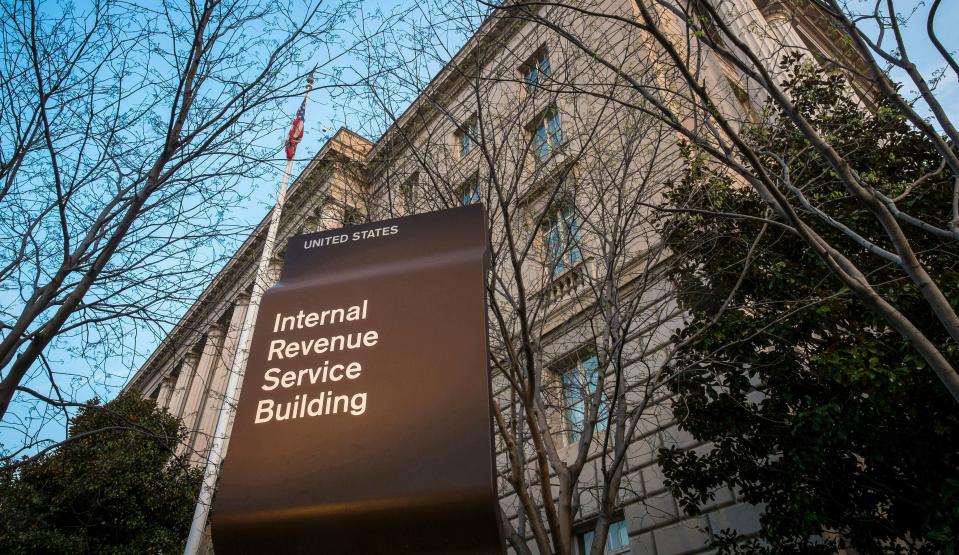People who don't file tax returns may get a knock on the door from IRS

The IRS is taking to the streets to track down high-income earners who haven't filed federal income tax returns or paid taxes.
The effort involves making roughly 800 face-to-face visits in the next two months to individuals who didn't file in 2018 or previous years. The IRS estimates that billions are lost in tax dollars because of these nonfilers. Thousands more visits across the country are likely throughout the year.
The goal is to engage with delinquent taxpayers who have not responded to multiple IRS notices. The move precedes possible legal claims by the IRS against property to secure payment of a tax debt.
The unscheduled, unannounced visits are not focused on any specific geographic area.
Those targeted have annual incomes in excess of $100,000 during a tax year.
"These visits should not come as a surprise, will not come as a surprise, to the taxpayer," said Hank Kea, director of field collection operations for the IRS small business/self-employed division.
Social Security: Avoid these 4 traps when claiming
Taxes 2020: What you don’t know about your tax bracket could hurt you
The Internal Revenue Service said it's going after some of the "most egregious" cases and assigning highly trained enforcement officers to talk directly to the person and open discussions about various options for how to pay the bill.
"This is now a specifically assigned case," Kea said.
Kea said that in some cases, appointments may be made in advance to meet with the violator.
"These visits are primarily aimed at informing these taxpayers of their filing and paying obligations and bringing these taxpayers into compliance," according to an IRS news release.
The IRS said it increased its use of data analytics, research and new compliance strategies to reach people who have not filed federal tax returns.
Taxpayers need to remember that third parties, such as their employer, share information with the IRS.
The IRS uses a system to hold an individual's income tax refund when his or her account has at least one unfiled tax return within five years surrounding that return.
Scammers love to pretend they're from the IRS. Most IRS officers will visit taxpayers at unannounced times, but they will provide two forms of official credentials that have a serial number and a photo of the IRS employee. The real IRS employee will be able to go into great detail about the specific issue facing the delinquent taxpayer.
The legitimate revenue officer should explain how much money is owed, as well as the consequences of failing to comply with the law. A real officer won't threaten a person with immediate arrest or demand that he or she put money on gift cards, which can be easily exploited by con artists.
If someone has an outstanding federal tax debt, the IRS said, the visiting officer will request payment, then provide a range of options, including writing a check to the U.S. Treasury.
Taxpayers face a deadline each year on April 15 to file their tax returns. Sometimes, IRS officials said, people don't file a return because they're worried that they owe money for taxes and they don't know how they'll be able to afford to pay it. Maybe they lost a job. Maybe they face high medical bills.
The IRS said taxpayers are better off filing a timely return instead of skipping it.
"Compliance issues simply don't get better with age," Kea said.
Contact Susan Tompor at 313-222-8876 or stompor@freepress.com. Follow her on Twitter @tompor. Read more on business and sign up for our business newsletter.
This article originally appeared on Detroit Free Press: IRS may come knocking for wealthy who failed to file tax returns
